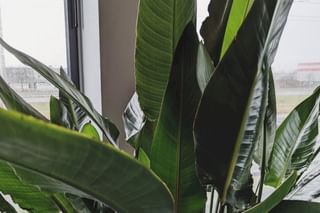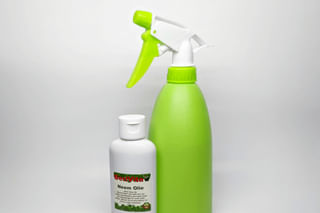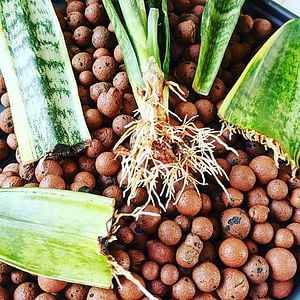The ultimate guide for a Bird of Paradise (Strelitzia)

The Bird of Paradise is one of the most well-known tropical houseplants. It's a very fast-growing plant that loves a lot of sunlight and moisture. It's not a difficult plant to take care of, but it does have its challenges. It grows...big. This plant can grow up to 1.80m (6ft) tall and 1.20m (4ft) wide.
To give you the best chance to take care of this plant, I've broken down the caring process into a few different steps. These steps give you the most in-depth information to teach you everything you need to know about caring for your plant.
-
How to care for a Bird of Paradise (Strelitzia)
-
How to use Neem Oil with plants
1
. How to care for a Bird of Paradise (Strelitzia)
Back to the top
The Bird of Paradise is one of the most well-known tropical houseplants. Surprisingly, it's quite easy to take care of this plant. In this plant care guide, we're going to find out how you can best take care of this beautiful and fast-growing tropical houseplant.
Read "How to care for a Bird of Paradise (Strelitzia)"
2
. How to use Neem Oil with plants
Back to the top
Neem Oil is quite well-known in the plant community as a way to prevent pest infestations. In this guide, we'll talk about everything you need to know about Neem Oil. We'll even give you a recipe for making your own Neem Oil mixture for much cheaper than you can buy in stores.
Read "How to use Neem Oil with plants"
In this ultimate guide to taking care for a Bird of Paradise, also known as a Strelitzia, we'll explore everything you should know about taking care of this plant.
Scientific classification of Strelitzia reginae
Plants go by many names, but it can become confusing very quickly if you're talking about different plants with the same nickname. That's why I'm including the scientific name of the plant, so we're all on the same page!
|
Classification
|
Name
|
|
Species
|
Strelitzia reginae |
Frequently asked questions
How should you water the Bird of Paradise (Strelitzia)?
The Bird of Paradise (Strelitzia) thrives in moist (no wet) soil, so make sure to regularly check the soil to see if you need to water it again.
How much sunlight does the Bird of Paradise (Strelitzia) need?
The Bird of Paradise (Strelitzia) does best in a spot where it gets bright, indirect sunlight. This spot is always bright but never gets direct sunlight.
How much fertilizer does the Bird of Paradise (Strelitzia) need?
The Bird of Paradise (Strelitzia) needs quite a bit of energy to grow, so you should fertilize it once per month in the spring and summer.
What is the best soil for the Bird of Paradise (Strelitzia)?
The Bird of Paradise (Strelitzia) likes to be watered when the top of the soil is dry, so use a soil mix that drains excess moisture quickly and holds onto some moisture for a few days.
What is the ideal temperature for the Bird of Paradise (Strelitzia)?
The Bird of Paradise (Strelitzia) prefers a spot that consistently stays between 18 - 27°C (64 - 80°F).
How do you propagate the Bird of Paradise (Strelitzia)?
To propagate the Bird of Paradise (Strelitzia), you can remove seeds / bulbs from the parent plant and grow the baby Bird of Paradise (Strelitzia)'s into an adult plant.
How often should you repot the Bird of Paradise (Strelitzia)?
You should repot your Bird of Paradise (Strelitzia) once every 3 year(s). This helps your Bird of Paradise (Strelitzia) to stay healthy for many years.
Is the Bird of Paradise (Strelitzia) easy to take care of?
The Bird of Paradise (Strelitzia) is a plant for more advanced plant owners and can be tough to take care of.
Didn't find what you were looking for?
We have resources about other plants and plant-related topics as well.
Perhaps these resources contain the information you're looking for.
I've written a lot of guides about all kinds of aspects of taking care of plants, but I could've missed that specific topic you were looking for. If that's the case, you can request a plant guide. This way I can provide you with the information you need quickly and you won't have to wonder if you're taking care of your plant properly anymore.


